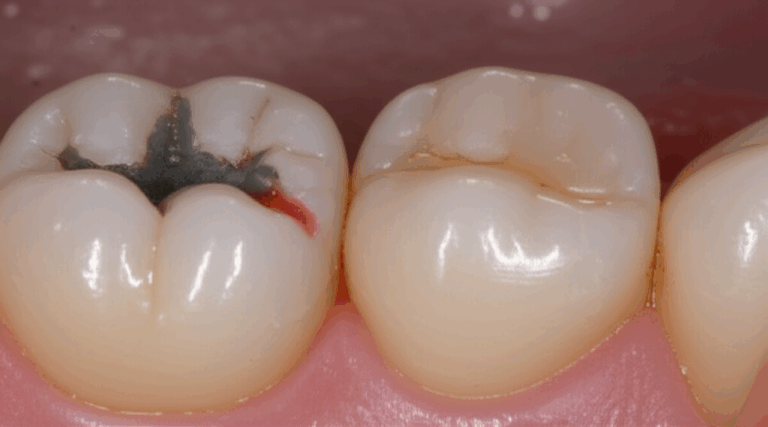
Can a Dentist Become an ENT Doctor? A Realistic Guide for Career Changers
Do you ever find yourself asking, “Can a dentist really become an ENT doctor?” Maybe you’re a dentist at a crossroads, or maybe you’re just curious because both fields work on the head and neck. Either way, thinking about this shows you’re ambitious, and you’re not the only one. A lot of healthcare workers wonder about making a big change at some point.
Let’s be real: Changing from being a dentist to an ear, nose, and throat (ENT) doctor—also called an otolaryngologist—is a huge step. It takes a lot of hard work, time, and honesty about what’s actually involved. My goal is not just to answer your main question, but to break down each part, show you the steps you’d have to take, and give you simple advice to help you decide what’s right for you.
We’ll start with the main question—Is this even something you can do? Then I’ll walk you through the basic requirements, key tests, what real people have done, and some other paths that might work better. Whether you’re a dentist thinking about a new start, a student weighing your choices, or just someone curious about how dental and medical worlds connect, you’ll finish this guide with more answers and confidence.
What We’ll Cover
- Understanding the Core Question: Is it Possible?
- Education Pathways: How Does a Dentist Become an ENT?
- Medical School and ENT Residency: What’s the Journey Really Like?
- Challenges and Roadblocks: What Dentists Need to Know
- Alternative Career Paths: Related Roles & Bridging the Fields
- Real-World Examples: Does Anyone Actually Do This?
- Your Healthy Takeaway: Summary and Next Steps
Understanding the Core Question: Is It Possible?
You might be wondering:
- “Can I, as a dentist, become an ENT right away?”
- “What other schooling or tests are there?”
- “Is this something people actually do?”
First, to know: ENT (otolaryngology) is a medical field, not a dental one. Dentists are experts in taking care of teeth, gums, jaws, and mouth problems. ENT doctors are full medical doctors—they treat many illnesses and do surgery on the ears, nose, throat, head, and neck.
In plain words: A DDS or DMD by itself doesn’t let you become an ENT. You have to get an MD (medical doctor degree), and then finish a hard ENT residency program. You can’t just “jump” straight from dentist to ENT.
Dentistry vs. Medicine: How Are They Different?
Think of it like this: A dentist has a toolbox for fixing cabinets (teeth, gums, mouth). An ENT is building the whole house (body systems of the head and neck). Both are important, but the tools, training, and plans are different.
Main Differences:
- Patient Focus: Dentists help with teeth and jaws; ENTs treat the whole head and neck (ears, nose, throat, more).
- School Paths: Dentists finish dental school (DDS or DMD); ENTs go through medical school (MD) and do years of added training.
- What They Do: Dentists fix teeth and mouths; ENTs handle ear infections, throat issues, sinus problems, speech, and more.
- Training: Dental school is all about mouth and teeth. Medical school covers the whole body; ENT training adds in lots of head/neck surgery and medical problems.
If you want to switch, you basically have to redo medical training from the start.
Education Pathways: How Does a Dentist Become an ENT?
So, you see: The answer is “yes, but…” Now I’ll lay out what that “but” includes—here’s each step.
Step 1: Medical School Prerequisites—Did You Take the Right Classes?
Remember your college science classes? Medical schools need you to have taken:
- Biology (with lab)
- Chemistry (general and organic, with lab)
- Physics (with lab)
- Biochemistry
- Psychology
- Statistics or math
- English or writing
Tip: Each medical school is a bit different. Check the classes you’ll need to apply.
If you’re missing classes, you’ll likely do a “post-bac” program, which is a short college course designed to help you catch up.
Step 2: MCAT Exam
You can’t avoid the MCAT (Medical College Admission Test) even with a dental degree. This is a tough, long test covering science, math, psychology, and how well you can think and solve problems. Studying takes months even for people who’ve been through years of higher education.
Step 3: Apply to Medical School
Dentists wanting to change jobs must apply through the standard system like everyone else. This means:
- Sending in all college/dental coursework
- Writing a personal statement about why you want to switch
- Getting strong reference letters from dentists and doctors
- Showing you shadowed or followed doctors in medicine (not just in dental clinics)
Admissions people want to see what you’ve got to offer—and why this makes sense for you.
Step 4: Finish Four Years of Medical School
When you get in, you start from square one—yes, even if you know head and neck anatomy from dental school. The first two years are classroom-based science and “book” learning. The next two years are clinical, where you rotate in real hospitals (seeing kids, adults, emergencies, surgery, and more).
Step 5: Apply for ENT Residency
Now comes another hard part. ENT is one of the hardest medical specialties to get into. You’ll need:
- Really high scores on board exams (the USMLE)
- Research and activities that show you’re interested in surgery/head and neck
- Letters from doctors, especially surgeons
- Good reviews from hospital rotations (surgical and otherwise)
Step 6: ENT Residency (5-7 Years)
If you get picked, you’ll spend 5–7 years in a tough, hands-on surgical learning job. You’ll train in ear, nose, throat, sinuses, voice box—plus cancer, face trauma, plastic surgery, and more. It’s demanding and busy, but you’ll learn a lot.
Step 7: Board Certification
At the end of your residency, you take more exams for ENT. Passing them gives you the real title of ENT doctor.
Medical School and ENT Residency: What’s the Journey Really Like?
Let’s look at what you’re truly signing up for.
Time Needed
Add it up: Going from dentist to ENT will mean 13–16 extra years after college:
- Catch-up (“post-bac”) school: 1–2 years (maybe)
- Medical school: 4 years
- ENT residency: 5–7 years
And that’s on top of 4 years of dental school you’ve already done. It’s a really long path.
Money
Medical school in the U.S. can cost $40,000–$90,000 a year, plus living expenses and exam fees. You could be adding $200,000–$400,000 more debt—plus the money you’re not earning as a dentist during those years. Residency pays a small salary, usually enough to scrape by.
Here’s a quick table:
| Step | Extra Years | Typical Cost (USD, approx) |
|---|---|---|
| Post-bac (if needed) | 1–2 | $20,000+ |
| Medical School | 4 | $200,000–$400,000 |
| ENT Residency | 5–7 | Paid job (low salary) |
Emotional and Personal Stuff
Changing careers halfway through may mean closing your practice, delaying family things, or moving to another city. You’ll be learning next to people much younger than you and competing for spots. It’s a big sacrifice and takes courage.
Challenges and Roadblocks: What Dentists Need to Know
Here’s what might be hard—no sugarcoating.
1. Strong Competition
Getting into medical school and then into ENT is super tough. ENT is one of the hardest specialties to get. Being a dentist is interesting to schools, but you still have to stand out.
2. Learning Gaps
Dentists, even those with surgical experience, may not know much about:
- Whole-body medicine (heart, lungs, digestion, internal diseases)
- Emergencies and hospital medicine
- Medicine for things besides the mouth
You must catch up, and quickly.
3. Age
Worried you’re too old? You’re not, but be ready to explain why this switch matters to you. Some students start medical school in their 30s or even 40s. That means less time working as an ENT, but your extra experience can help.
4. Money
Changing means dropping a good dental income and taking on more—and probably bigger—loans. Not everyone can do this.
5. New Licensing
Your DDS/DMD doesn’t count. You do all the same tests as new med students and residents.
Alternative Career Paths: Related Roles & Bridging the Fields
What if you want to do more surgery on the head and neck, but not start all over? Good news: There are other paths.
1. Oral and Maxillofacial Surgery (OMFS) with MD Track
If surgery is your dream:
- OMFS is a top choice for dentists who want to do more than regular dental care.
- Some OMFS programs include both dental and medical degrees (the MD part usually takes 6 years).
- These surgeons do big head and face operations, work closely with ENTs, and usually earn high respect in both fields.
- If you want to work with crowns and bridges, see crown and bridge lab or emax dental lab to learn about newer techniques in dental care.
2. Head and Neck Cancer Teams
Some dental surgeons (especially OMFS) join teams who treat people with head and neck cancer. You work with ENT doctors, cancer doctors, and more on tough cases.
3. Craniofacial and Face Repair Surgery
Want to help people born with facial differences or those hurt in accidents? OMFS surgeons can train further in fixing these kinds of problems.
4. Dental Sleep Medicine
Treating sleep issues like sleep apnea is a shared area for dental and ENT experts. Specializing here lets you help patients with airway, jaw, and face issues—all without swapping your DDS for an MD.
5. Dual Roles: Mixing Dental and Medical Work
If you know both sides (dental and some medical), you can do research, teach, or help lead teams that work above the neck. Experts who can “connect the dots” are always needed.
Real-World Examples: Does Anyone Actually Do This?
Let’s be honest—it’s rare, but it does happen. Here’s a story based on true events:
Dr. A’s Story: From Dentist to ENT Doctor
Dr. A worked as a dentist for five years, but grew interested in big head/face surgeries and wanted to treat whole-body diseases. She did a two-year college catch-up program to take needed classes. Next, she studied hard and did really well on the MCAT. She got into medical school, worked hard for four more years, and did loads of surgery rotations.
Even though it was super tough, Dr. A matched into a five-year ENT residency program. Her dental training helped, but she struggled at first with medical and emergency care. After almost 12 extra years of schooling (and a big pile of debt), she finally earned her license as an ENT doctor. Now, her knowledge of the head and neck is second to none. She says it was worth it—but also says it was really, really hard and expensive.
What to Learn from Her Story:
- This path takes dedication and a lot of effort.
- You don’t save time just because you’re a dentist.
- Money and life sacrifices are real.
- But for some, the learning and new skills are worth it.
Frequently Asked Questions
Can a dental surgeon become an ENT doctor without more schooling?
No. ENT is a medical specialty. You must redo school and certain training.
What’s the difference between an oral surgeon and an ENT?
Oral surgeons (OMFS) treat teeth, jaws, and sometimes parts of the face; ENTs take care of everything in the ear, nose, and throat, including more diseases and surgeries.
Are there dental schools with both DDS and MD together?
Some oral surgery programs give you both, but they still don’t cover all the same things medical school does for ENT doctors.
Is it too late to do this as an adult dentist?
Unusual, but not impossible. If you keep your grades up and have a strong reason, some older students do it.
Your Healthy Takeaway: Summary and Next Steps
Let’s break it down—no big words, just the basics:
- To become an ENT after being a dentist, you have to start from the beginning: medical school, then a hard-to-get residency, and new exams.
- There’s no direct or fast way; your DDS/DMD is good experience, but it doesn’t qualify you in medicine.
- Be prepared for tough competition, debt, and several years of late nights and hard work—but also new skills and cool rewards if this is your dream.
- Other options like oral and maxillofacial surgery (OMFS), dental sleep medicine, or face repair surgery keep you close to this kind of care without such a big restart.
- To begin, research post-bac options, talk to both dentists and doctors, and follow some ENTs to see if you like their work.
- If you’re set on this big jump, talk to your family and maybe a money advisor—then go for it if it feels right!
Bullet-Point Recap
- Dentists cannot become ENTs without new medical school, residency, and tests.
- Be ready for 9–13+ extra years of schooling and training.
- You’ll take the MCAT, go through med school, and apply for ENT training—no shortcuts.
- Oral and maxillofacial surgery is a common, related career with some medical crossover.
- It’s a rare path, but not impossible for someone really driven.
- Research, know why you want to do this, and build your skills and experiences if you try for it.
Ready for Your Next Step?
Ask yourself: Do you want to do more for patients? Do you want to do bigger surgeries? Or are you just looking for a new challenge? If any of that sounds like you, start by connecting with ENT and OMFS doctors, check out digital dental lab for new dental technology, and look into other advanced training where dental and medical work meet.
Most of all: Don’t be afraid to ask questions and learn new things. Every good career starts with curiosity—just like yours.
Medically reviewed by a team with experience in dental education. For more, see groups like the American Dental Association (ADA) or the American Academy of Otolaryngology—Head and Neck Surgery. And remember: Always get advice that fits you from a local advisor or specialist.








